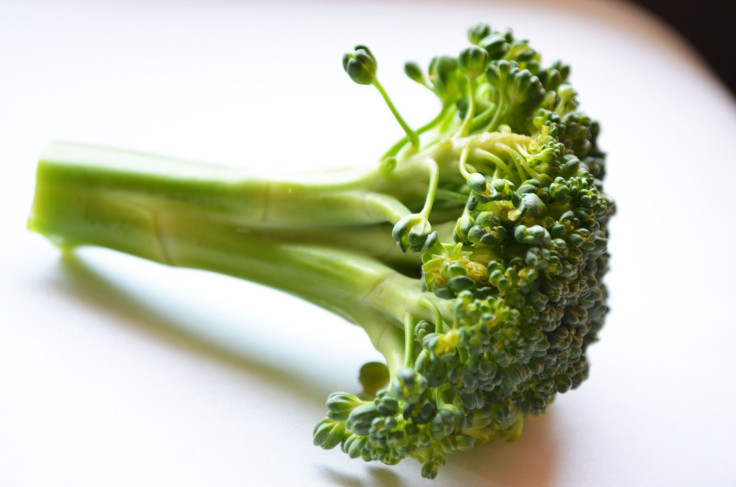Table To Bedside: Broccoli Compound 'Sulforaphane' May Prevent, Treat Cancer

Study after study has shown that cruciferous vegetables, particularly broccoli, possess the ability to ward off cancer in some way or another. One recent study found that a specific enzyme found in cruciferous vegetables may prevent certain cancers from relapsing, by killing the cancer stem cells. Another showed the broccoli sprout extract reduced the risk of oral cancer in mice who were predisposed to the disease.
Now, a new study out of the Texas A&M Health Science Center turns to a specific compound in broccoli and other cruciferous vegetables known as sulforaphane, finding that it may not only prevent cancer — but it may also assist in treating it. In the study, published in the journal Clinical Epigenetics, the researchers used broccoli sprout extract (BSE), a supplement which contains sulforaphane. They tested to see if BSE was capable of preventing or even treating colon cancer, and they found that indeed it was.
The researchers gathered 28 participants over the age of 50 who were undergoing routine colonoscopies. They were asked to complete a survey about their vegetable-eating habits and were later measured for their levels of p16, a tumor suppressor gene, in their colons. The people who ate more cruciferous vegetables had higher levels of p16 in their colons — and the levels stayed high even if they didn’t eat vegetables every day. The researchers believe this may happen because sulforaphane triggers the body to change genes to better prevent tumor growth.
“This hints at the possibility that epigenetic mechanisms are initially triggered by sulforaphane and its metabolites, and downstream mechanisms could be sustained, at least in the short-term, even after compounds are eliminated from the body,” the researchers said.
While plenty of BSE supplements are available for regular people to buy, the researchers note that they aren’t entirely certain if all these supplements are safe or effective. The kind they used appeared to work, but more research is needed to determine that conclusively.
“We have not seen any serious adverse events in healthy volunteers who consumed BSE pills for seven days,” Praveen Rajendran, an author of the study, said in the press release. “We have used a standardized broccoli extract in our study provided by Johns Hopkins University. This BSE supplement is being evaluated in several other clinical trials around the country, but I’m not sure other, similar supplements available to the public have the same level of active ingredients, including sulforaphane.”
In addition to that, the researchers note that there may be some risks of long-term BSE use. Sulforaphane introduces a protein called Nrf2, which can fight cancer, but later on it can also contribute to plaque buildup in arteries. As a result, the researchers warn people not to begin taking supplements without consulting their doctors first.
"[W]e’re not quite ready to recommend everyone take a BSE supplement, and it’s certainly worth reiterating what nutritionists have said for years: eat your vegetables," Rajendran said in the press release.
Source: Rajendran P, Dashwood W, Kang Y, Kim E, Johnson G, Fischer K. Nrf2 status affects tumor growth, HDAC3 gene promoter associations, and the response to sulforaphane in the colon. Clinical Epigenetics. 2015.



























